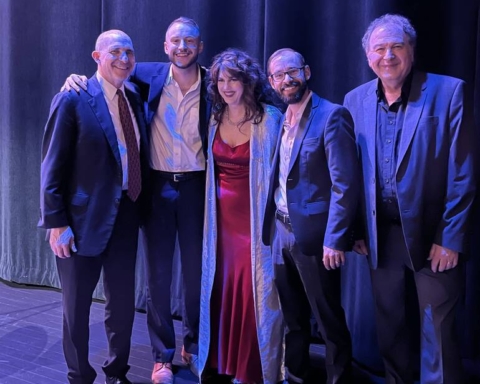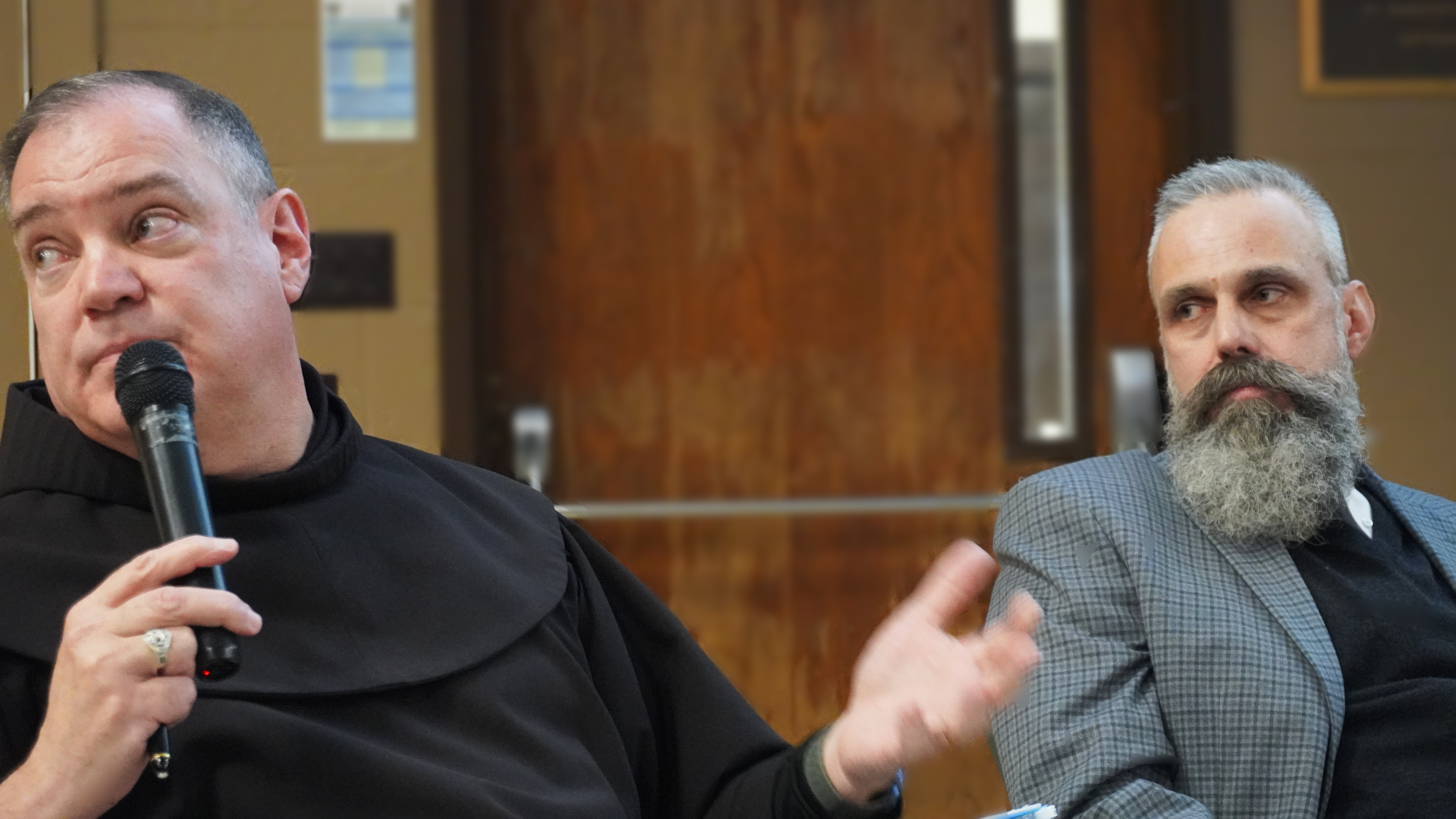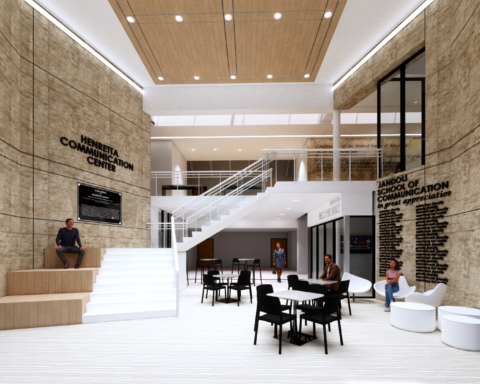The university Administration Building
Photo: David Scibilia/The Bona Venture
BY ELIZABETH KAMROWSKI, NEWS EDITOR
Over the next couple of months, St. Bonaventure University’s Faculty Senate will be reviewing outcomes of the general education requirements to evaluate their relevance to students’ education today.
In 2016, the faculty senate undertook a revision of the Gen Ed curriculum and designed the structure that still exists today. This model includes classes such as English 101, Philosophy 104 and the theology and Franciscan studies requirements, according to Kaplan Harris, professor of English and chair of Faculty Senate.
“The Gen Ed program was created eight years ago, and it is time to review what we have created to see if it still fits the needs of our students,” said Guy Imhoff, associate dean of arts and sciences.
Andrew Belfield, assistant professor of theology and Franciscan studies and co-chair of the Faculty Senate Curriculum Committee, said this review is also done to ensure the Bonaventure values are still being taught.
“ It’s time to take a fresh look at them and ensure they’re still facilitating the undergraduate educational experience we value at SBU: an academically rigorous, holistic education grounded in the Catholic-Franciscan and liberal arts traditions,” said Belfield.
The senate has formed committees with representative faculty from every division and areas, according to Harris.
“The committees have been charged with reviewing the learning goals for each of the courses in the general education curriculum,” said Belfield.
Those core courses under review are BONA-101, THFS-101, PHIL-104, and ENG-101 and 102, the seven distribution requirements including theology and Franciscan studies, historical studies, literature and the visual and performing arts, natural science with a lab, philosophy, quantitative literacy, and social science, and intensive writing and diversity, according to Belfield.
Committees report back to the senate in December 2024, with their final report due a month later, according Harris.
Belfield said these committees help the process due to the expertise that the faculty has on the topics, which can help refine the learning goals.
“The faculty here are experts in their fields, and we want that expertise reflected in the education we offer,” said Belfield. “We want to use the best of our faculty’s experience and expertise as we review these learning goals.”
Harris said revisions like this are important for all universities.
“It’s part of the responsibility of any university and Faculty Senate to make sure what we’re doing is still timely and relevant,” said Harris.
Belfield said curriculum reviews are beneficial to students because they will ensure the classes being taught are helping them lead a meaningful life.
“Curriculum reviews like these benefit students because they ensure we are meeting our students’ changing needs while also challenging students to grow in wisdom, compassion and integrity,” said Belfield. “The sorts of things a student learns in the general education curriculum — critical reasoning, ethical decision-making, delighting in intellectual inquiry and appreciating art and beauty, to name just a few — are all dimensions of a meaningful life.”
Harris said Gen Eds are an important part of student’s education
“Gen Eds are a phenomenal thing,” said Harris. “It’s meant to facilitate a society where people can talk outside of their own expertise.”
Kyle Mascia, a senior business management major, said he values his Gen Ed classes at Bonaventure.
“I like that [Gen Eds] have given me an opportunity to learn things outside of my major,” said Mascia. “It has made me a more well-rounded student.”
Mascia understands the importance of Gen Eds and said they have given him the chance to explore new things that he never thought he would be able to in college.
“I have had new experiences in my Science of Fermentation and Beer class this year,” said Mascia. “I never thought I would be making beer in one of my college classes.”
Harris said Gen Eds are the foundation of a liberal arts education.
“In education, liberal arts means your core areas of knowledge,” said Harris. “It means being familiar with different ways of knowing the world.”
kamrowes23@bonaventure.edu








